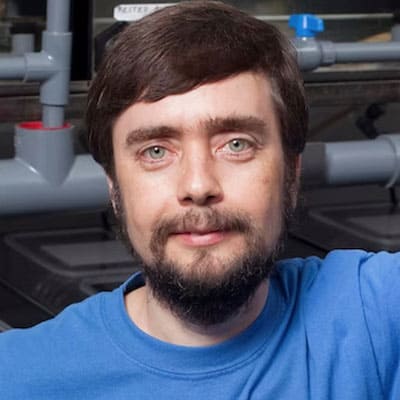Presenter

Michael Levin
Michael Levin is the Vannevar Bush Distinguished Professor of Biology at Tufts University, and associate faculty at Harvard’s Wyss Institute. He serves as the director of the Allen Discovery Center at Tufts and the co-director of the Institute for Computationally Designed Organisms at Tufts/UVM. He has published over 400 peer-reviewed publications across developmental biology, computer science, and philosophy of mind. Dr. Levin received dual B.S. degrees in computer science and biology, followed by a Ph.D. from Harvard with Clifford Tabin. His graduate work on the molecular basis of left-right asymmetry (Cell 1995) was chosen by the journal Nature as a “Milestone in Developmental Biology in the last century”. He did post-doctoral training at Harvard School of Medicine in cell biology, and started his independent lab in 2000, developing the first molecular tools to read and write bioelectric prepatterns in non-neural tissue. His group at Tufts works to understand information processing and problem-solving across scales, in a range of naturally evolved, synthetically engineered, and hybrid living systems. The Levin lab has pioneered approaches to organ regeneration, cancer reprogramming, non-genetic modification of the bodyplan, and the engineering of novel living proto-organisms. Using tools from behavioral and computer science, Dr. Levin seeks to understand the collective intelligence of cells and harness their problem-solving capacities for applications in birth defects, regeneration, cancer, and synthetic bioengineering.
Summary:
We all start life as a single cell, which self-assembles into a complex organism, simultaneously scaling up the emergence of both, body and mind. The journey through anatomical option space is not merely a mechanical process of generating complexity: it involves powerful navigational competencies to achieve its goal despite unexpected circumstances – a.k.a., problem-solving. In this talk, I will describe how the behavior of cellular swarms during development and regeneration can be analyzed and modulated as a collective intelligence. This framework allows powerful approaches to reprogramming growth and form which go far beyond the current emphasis on the genetically-specified molecular hardware. We have developed new tools to read and write non-neural bioelectric states – the cognitive glue that binds cells together to expand their cognitive light cone and enable them to cooperate toward specific complex anatomical outcomes. By re-writing these pattern memories, we have shown applications in the repair of complex birth defects, regeneration of limbs, and normalization of cancer. In this talk, I will sketch a roadmap that begins with an understanding of the plasticity and competencies of the agential substrate of evolution and aims toward a radical regenerative medicine in which we collaborate with the native intelligence of cells and tissues.
Challenge:
What challenge would you like to see solved for progress in your field?
There are technological challenges and conceptual challenges. The technical ones include better reagents for monitoring bioelectrical state in deep tissues in vivo. The conceptual ones involve abandoning sterile,
pre-scientific binary distinctions of “machine” vs. “mind” and the development of the field of diverse intelligence in unconventional embodiments, which will advance biomedicine in the same way that understanding reprogrammable software led to the information
technology revolution.
